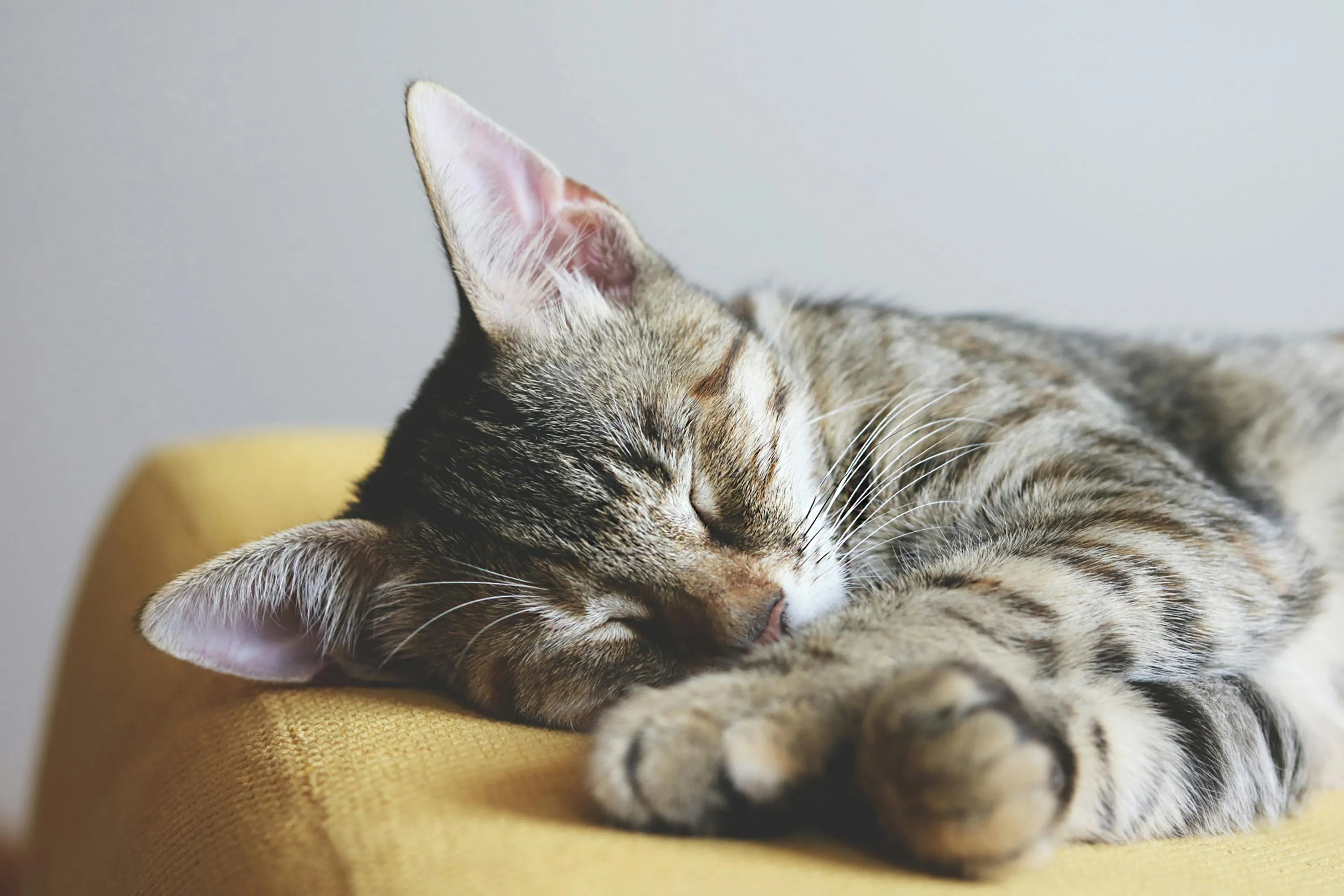Castration in cats - advantages & disadvantages, optimal timing & procedure
Whether an indoor cat or an outdoor cat - at some point, many cat owners are faced with the question: Should I have my cat neutered? Neutering is a routine procedure in veterinary medicine, but this decision should still be carefully considered. In this article, you will find out when it makes sense to neuter your cat, how the procedure works, what effects it can have on your cat and what costs you will incur.

Does neutering cats make sense?
Unneutered males are often more aggressive towards other males and often get into territorial fights, which can result in deep bite wounds. In addition to the risk of painful injuries, there is also the danger of transmitting diseases such as FIV (Feline Immunodeficiency Virus), which in the worst case can lead to chronic or life-threatening infections. In addition, many tomcats will go on mile-long, exhausting forays if they notice a female cat in heat in the area - which significantly increases the risk of being run over.
Another common problem is marking in the home: unneutered tomcats often deposit strong-smelling urine on furniture, walls or other places to mark their territory. Due to the high content of sex hormones and pheromones, the odor is particularly intense and often sticks to the animal itself.
The issue is also more complex for female cats than many people think: they can become pregnant again just a few weeks after giving birth. Without neutering, this can result in two to three litters per year - which contributes to overpopulation and unwanted offspring. Unneutered outdoor cats also contribute to a further increase in the number of stray cats. In Switzerland, this figure is already estimated at around 100,000 to 250,000 animals.
In addition, many unneutered cats suffer from stress due to frequent heat cycles. This occurs every two to three weeks and manifests itself in frequent meowing, rolling on the back and changes in behavior.

Neutering not only offers long-term prevention, but also protects health: diseases of the uterus and ovaries as well as breast cancer (mammary tumors) occur significantly less frequently in neutered female cats. The behavioral changes that may occur are usually positive: cats generally become calmer and more affectionate - but their playfulness and personality remain the same.
What are the disadvantages of having my cat neutered?
Metabolic changes can occur after neutering. Cats gain weight more quickly and are more likely to become overweight - especially if they are not fed an appropriate diet. The risk of urinary stones is also slightly increased in neutered cats, but neutering is only one factor that favors the development of these.
When is the right time to have my cat neutered?
Ideally, cats should be neutered before they reach sexual maturity. A male cat reaches sexual maturity at 4-6 months, a female cat at 6-8 months. In certain cases, it may also be advisable to neuter a cat earlier. However, the exact timing should be discussed with a vet.
Our tip: Do you have questions about neutering? Are you unsure whether you should neuter your cat?
As a Calingo customer, you have the opportunity to chat or call a vet online free of charge and from the comfort of your own home. The online vet advice service supports you with questions about neutering and all other animal health issues.
How does castration work?
Cats are usually neutered at the age of five to six months - i.e. shortly before they reach sexual maturity. Before the procedure, a health check is always carried out by the vet to rule out any possible risks for the general anaesthetic required.
In male cats, the procedure is relatively simple: the testicles are removed through a small incision - there are usually no stitches as the wound closes quickly on its own.
In female cats, an abdominal incision is made to remove the ovaries. Complete removal of the uterus is only necessary in certain cases (e.g. complications or older animals).
After the procedure, your cat will need to rest for a few days and take painkillers. Wound protection is particularly useful for female animals to ensure that healing proceeds undisturbed.
How much does neutering cats cost?
The costs vary depending on the veterinary practice, sex and method:
- Male cat: approx. 60 - 160 CHF
- Cat: approx. 150-260 CHF
In addition, there may be costs for preliminary examinations, medication, aftercare or hospitalization in the event of complications.
Our conclusion
For many cats - especially outdoor cats - early neutering is an important step to prevent disease, avoid stress and prevent uncontrolled reproduction. As with any medical procedure, there are certain risks involved, especially in connection with anesthesia. Good veterinary care and a comprehensive health check beforehand are therefore essential.
As both the procedure itself and possible follow-up treatments (e.g. in the event of complications or illnesses) can incur costs, it is worth taking out cat insurance early on. That way, you are well covered if the worst comes to the worst - and your cat is well looked after.
During castration, the reproductive organs (testicles or ovaries) are completely removed, which stops hormone production and eliminates the sex drive. In sterilization, only the sperm or fallopian tubes are severed, which prevents reproduction but preserves the hormone balance and sex drive.
The behavioral changes that may occur are usually positive: cats generally become calmer and more affectionate - but their playfulness and personality remain the same.
The advantages of neutering cats outweigh the disadvantages. Nevertheless, there are also disadvantages. Metabolic changes can occur after neutering. Cats gain weight more quickly and are more likely to become overweight
The costs vary depending on the veterinary practice, sex and method: male cat: approx. 60 - 160 CHF Cat: approx. 150-260 CHF
From pet parents for pet parents
The health of your furry nose is our job









